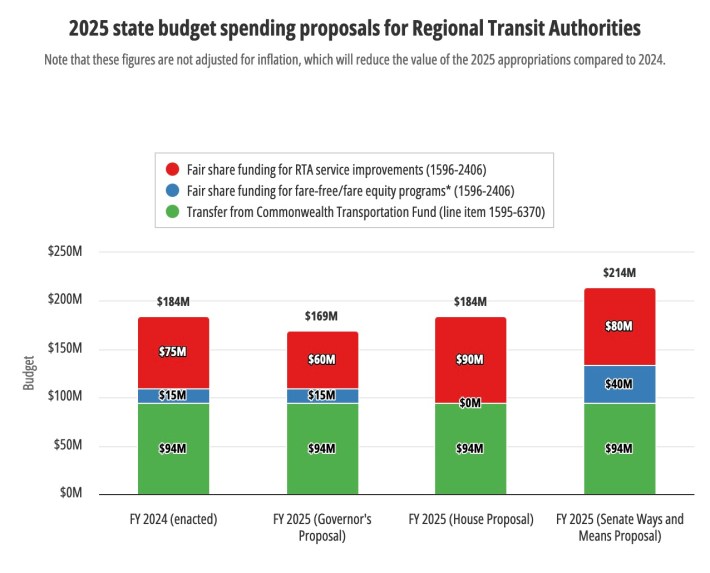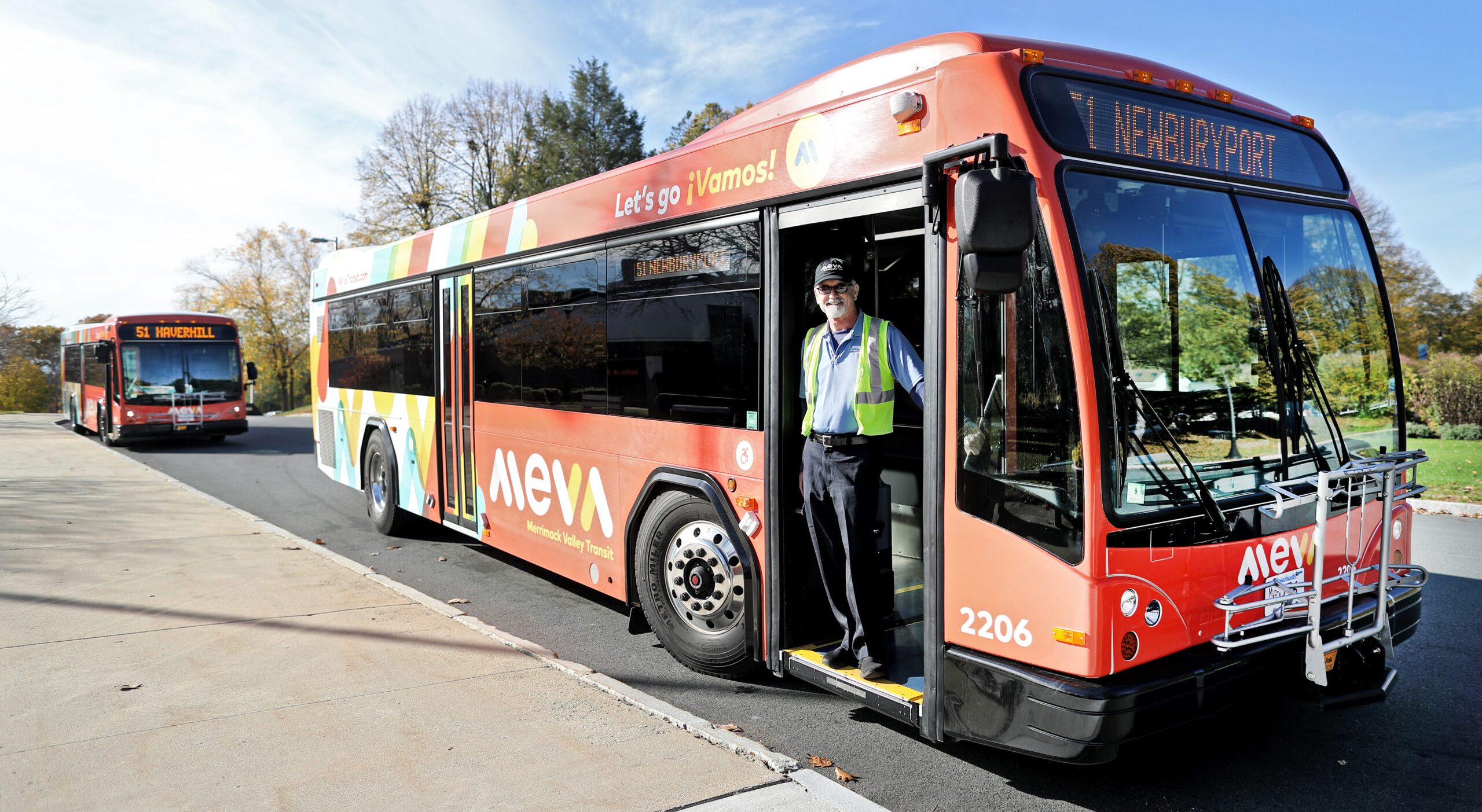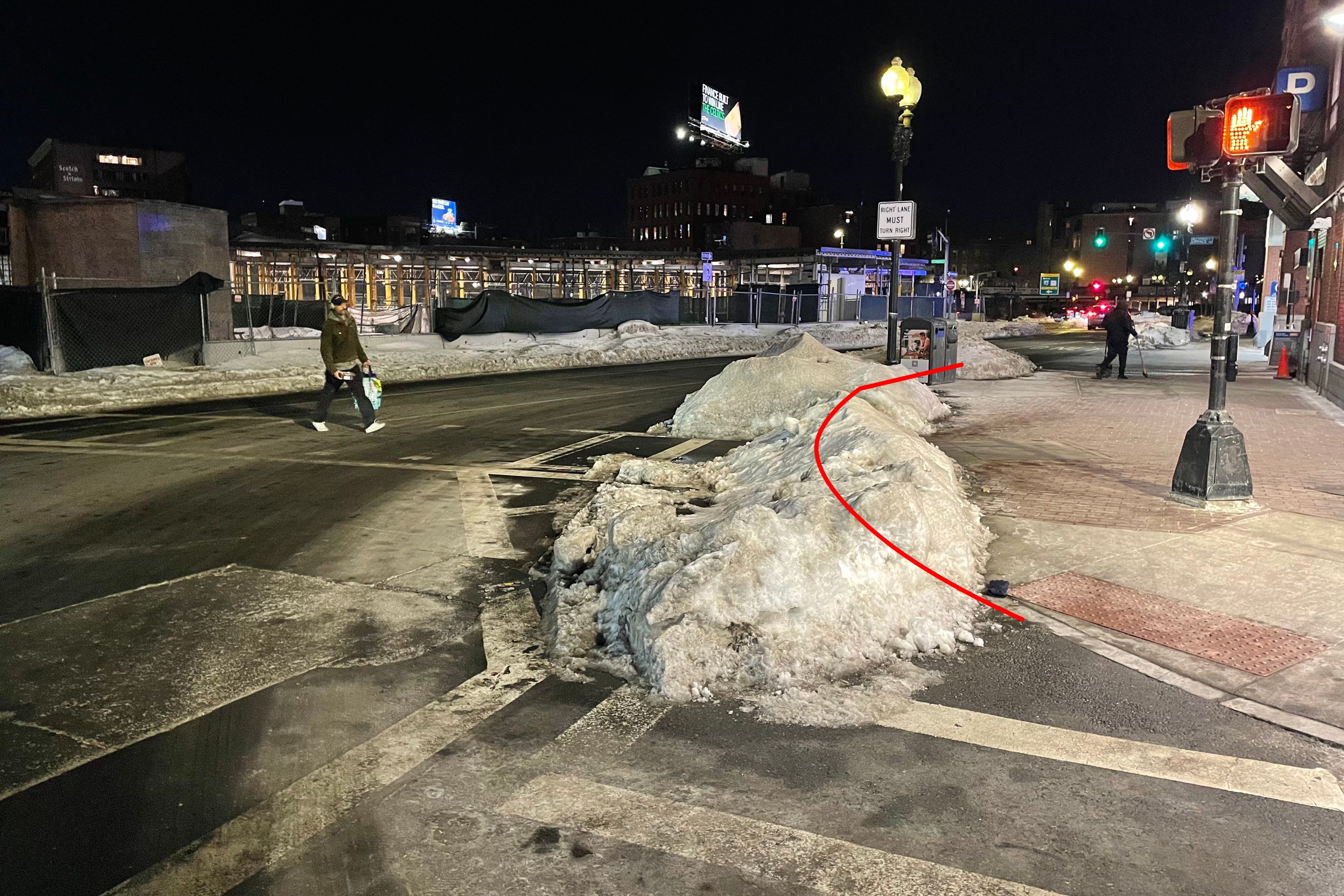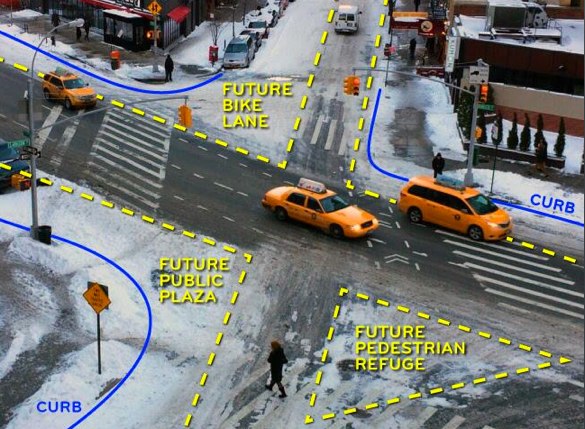The budget-writing committee of the Massachusetts Senate published its 2025 spending recommendations this week, with a notable increase in funding for the state's Regional Transit Authorities (RTAs).
Unlike Governor Healey's budget proposal, which proposed a cut in RTA funding, the Senate Ways and Means Committee is proposing to increase the Commonwealth's investments in the RTAs, which operate public transit routes outside of the MBTA's service area.
Most notably, the Senate's budget proposal includes a new $40 million line-item for "systemwide implementation of fare-free transit service" for all 15 of the Commonwealth's RTAs.

Last year's enacted budget provided a historic boost for RTAs thanks to new revenue from the new Fair Share Amendment, which imposed a higher income tax rate on high-income households.
Governor Healey's budget bill, released in January, would have reduced the amount of state funding available for the RTAs by 8 percent.
Earlier this spring, the Massachusetts House of Representatives countered that proposal by approving a budget bill that would flat-fund RTAs at last year's levels, without an adjustment for inflation. The House bill also does not include any specific earmarks for fare-free programs.
Last week, the Senate Ways and Means committee released its own proposal, which proposes a $30 million increase in state support for RTAs – a 16 percent increase over the current year's budget.
In addition to $40 million for fare-free RTA service statewide, the Senate bill would also set aside an additional $80 million for service improvements at the RTAs and other nonprofit transportation providers.
Legislature is less generous for MBTA's new low-income fares
The MBTA is also expected to implement a new half-price fare for lower-income riders later this year. That program is expected to cost the T between $52 and $62 million a year in reduced fare revenue and administrative overhead.
In her January budget bill, Gov. Maura Healey earmarked $45 million to get the low-income fare program underway, but the Legislature has been more stingy in its budget proposals.
The adopted House budget would only set aside $20 million for the program's first year, and the Senate bill earmarks $23 million.
Fare-free RTAs have seen biggest growth in ridership
Several of RTAs – most notably the WRTA in Worcester and MeVa in the Merrimack Valley – have already been operating without fare collections for several years.
Those same agencies have also seen the biggest gains in transit ridership since the onset of the Covid-19 pandemic.
The WRTA’s ridership last year was roughly 33 percent higher than it was before the pandemic began: the agency provided over 4 million fare-free bus trips in 2023.
Overall ridership at the MBTA, by contrast, is still only about two-thirds of what it was in 2019.
Legislators set aside $15 million for a grant program to support fare-free pilot programs at other RTAs statewide in last year's state budget. However, that funding was not sufficient to replace fare revenue altogether.
Agencies like the WRTA and MeVa have been relying on federal pandemic relief funds to support their fare-free programs, but those funds are dwindling, and additional state support will be necessary to continue those programs in the longer term.






